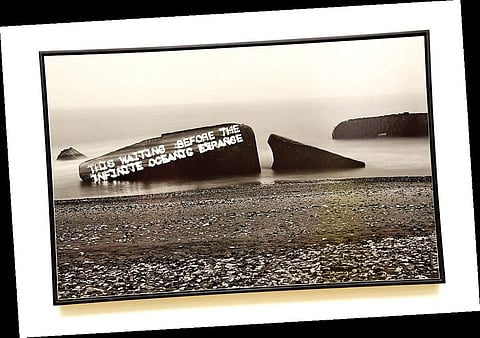

CHENNAI: At a very early age, Ursula Zeller (German curator and art historian) knew she wanted to work in a museum. “When I was a child, I visited a museum in a city close to my town where they were showing a large collection of modern art. I was inspired by it and knew I should take it up too,” she says.
Coming from a family with no background in art, she set out to fi nd how exactly it would be to work in a museum. “And when I began to work, it turns out I had to study entire art history,” she laughs.
She got a PhD after completing her dissertation on the German political posters between 1848 and 1914, and joined as the head, visual department, Institute for Foreign Cultural Relations (IFA), Stuttgart.
Zeller was in Chennai to launch Kunstraum Deutschland (Artspace Germany), an art exhibition featuring the works of 13 artists living and working in Germany, who, while making signifi cant contributions to Germany’s art scene, were not German citizens.
Curated by Zeller, and presented at the Lalit Kala Akademi by the Goethe Institute Chennai and IFA, the exhibition features several works in various mediums like paintings, drawings, sculpture, installation art, mixed media and more. The show, which premiered in 2011, has been presented in over 10 countries. “I wanted to show what the current German art scene consists of, especially in today’s world,” explains Zeller.
“When I started working on the show, migration wasn’t such an urgent topic. But in 2015 alone, Germany had more than one million migrants. If society is discussing a certain topic, artists also discuss it in their work. It’s a very important part of our life.”
The works hosted at the Lalit Kala Akademi cover a wide variety of topics, ranging from war and violence to nature and recycled material. There are multiple works by each artist, reflecting their own passage through time as creators of art.
“Art is always at the tip of our time,” Ursula says and explains why she chose these artists and the pieces of art that she did. “As a curator, I ask myself why people should be interested in this particular exhibition. I wanted to showcase the contribution that these artists have made to Germany’s art scene even though they are not German citizens. This exhibition is travelling the world as a ‘German’ exhibition.”
When asked about her motivation for curating art, Ursula says, “I was always a curious person. If anything interesting comes up, I always say ‘I do’. I am interested in telling stories that people can learn from. I like works of art that viewers can start a conversation with, even if it’s just one aspect of that art. It really enriches our lives to approach a work of art from different angles.”
This is not Ursula’s fi rst time in Chennai; she had visited Chennai in the 90s and she found the place charming. We ask her take on museums and she says, “If a museum is really well done, there is really no other place that is more interesting. Museums don’t just preserve history, but they ask questions that are relevant now. They help us ask important questions about the world we live in.” Sharing that very few people believe there are a lot of museums in Germany, the artist laughs and says, “I think when people are looking for meaning in their life and want to make sense – they sometimes go to a museum instead of a Church. I think museums can help find that.”